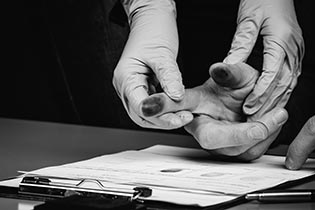 Being imprisoned ranks fourth on the top 10 stressors list so it’s no surprise that getting arrested sparks a great deal of anxiety.
Being imprisoned ranks fourth on the top 10 stressors list so it’s no surprise that getting arrested sparks a great deal of anxiety.
In the event that you find yourself in custody, it is critical to remain calm. The police will be watching and observing your behavior to see if you do anything that would cause suspicion. Their observations will be noted on the incident report for later use in court. Not only will staying calm likely make you look less guilty to the police, it may help you keep incriminating information out of the police report.
Tips for staying calm
- First, verify that you are, in fact, being arrested. Ask the officer directly what charges are being levied against you. Sometimes, the formality of official police business makes it appear that you are being arrested when, in fact, you are not. For example, if you are being detained, the police will conduct a brief and cursory interview with you. After that, you are free to go. Even if you are being questioned in conjunction with a crime, the police are likely to release you after you have answered their questions.
- Second, take a few deep breaths to help you get and remain calm. Tell the officer that you intend to be silent and then do so. Lawyers will tell you there is little benefit to you for speaking at all.
- Third, immediately ask for a lawyer. Be polite and courteous when making this request and follow it up with silence. This request will stop all questioning.
Know that you do not have to agree to any searches of your home or vehicle. Again, be polite in declining any requests to conduct a search of any kind. If you are brought to jail, however, everything on your person will be gone through thoroughly, and there is no consent needed to conduct this search. Even if you believe you are being arrested unjustly or that your rights are being violated, remain polite and do not assert yourself. Prosecutors often talk with police officers to determine how the alleged offender acted during the arrest, and that information can influence how aggressively the case is pursued and what kind of plea deals are offered.
What not to do
In addition to the above advice, there are a few specific “what not to do” tips that can come in handy:
- Avoid incriminating yourself. Do not admit that you took part in an illegal act of any kind. Remember that when you are in the presence of a police officer, everything you say, even remarks made “in passing,” can and will be used against you.
- Don’t lie. Instead, offer only neutral statements, such as “I don’t remember” or “I’m not sure.” Remember that remaining silent prevents you from self-incrimination and lying.
- Resist the urge to argue with officers no matter how right you think you are. The more courteous you are to the officers in charge, the better your treatment will be.
Being arrested is never fun but following this advice can help you maintain a calm demeanor, which will go a long way towards as positive an outcome as possible.







